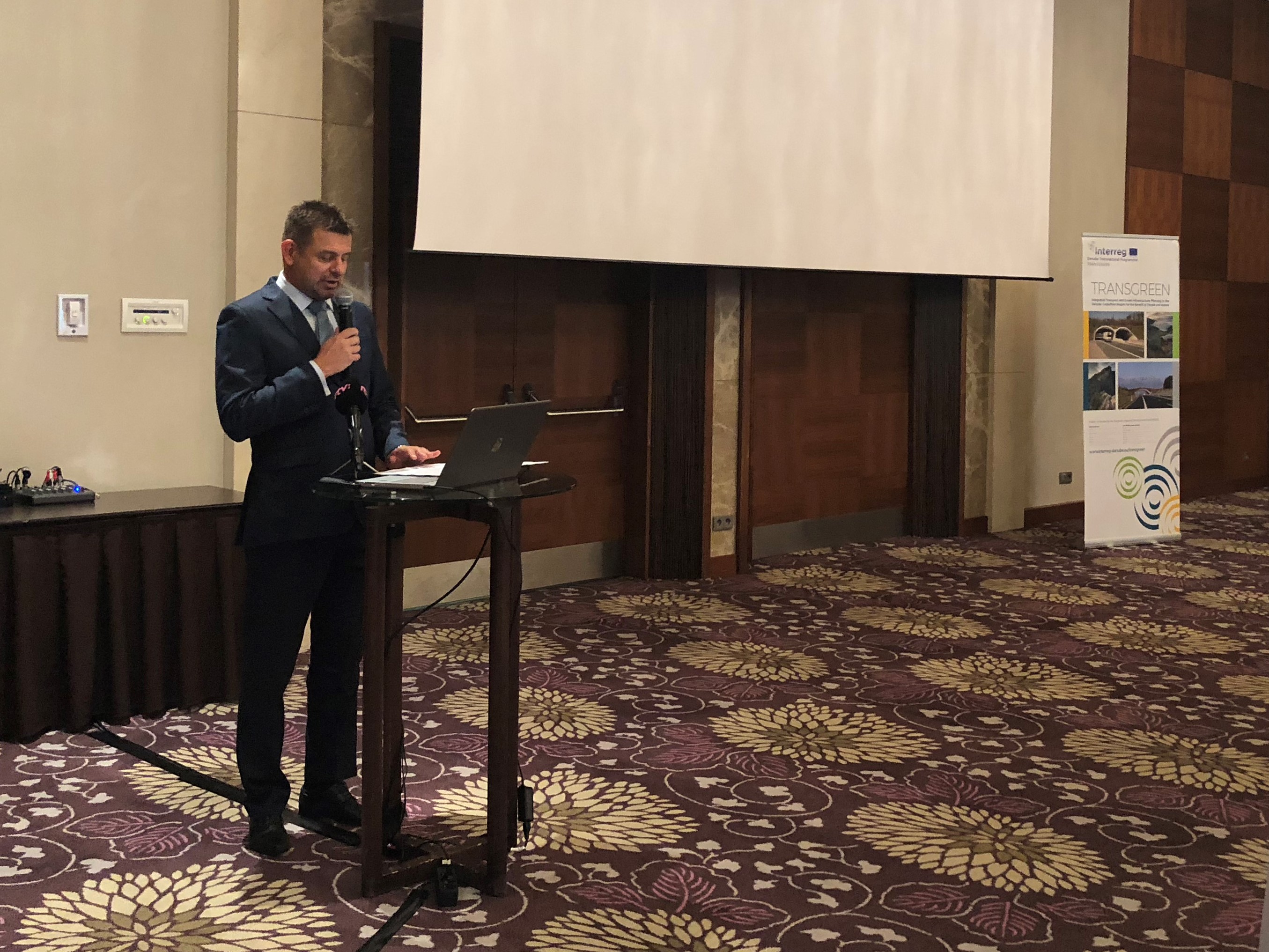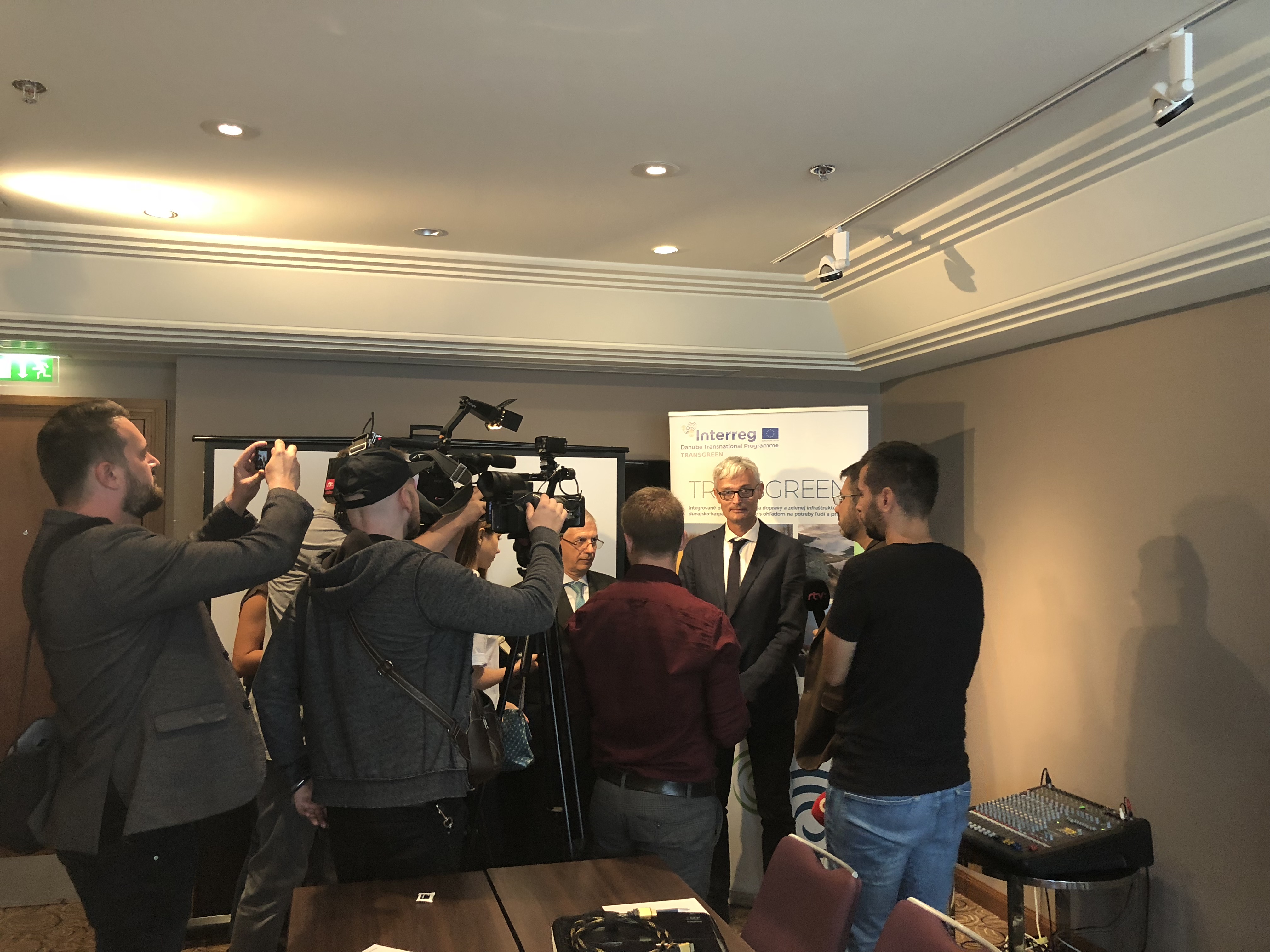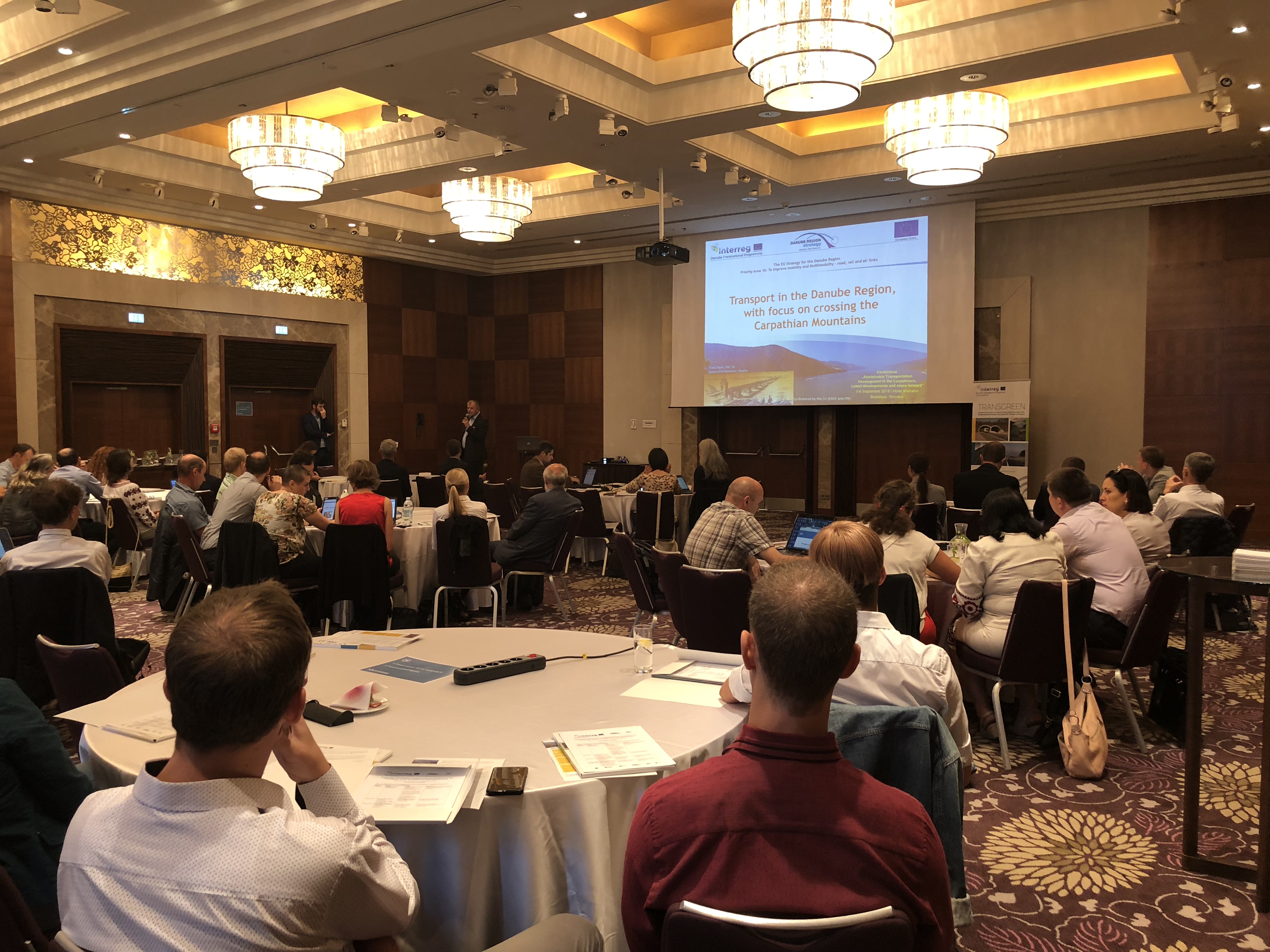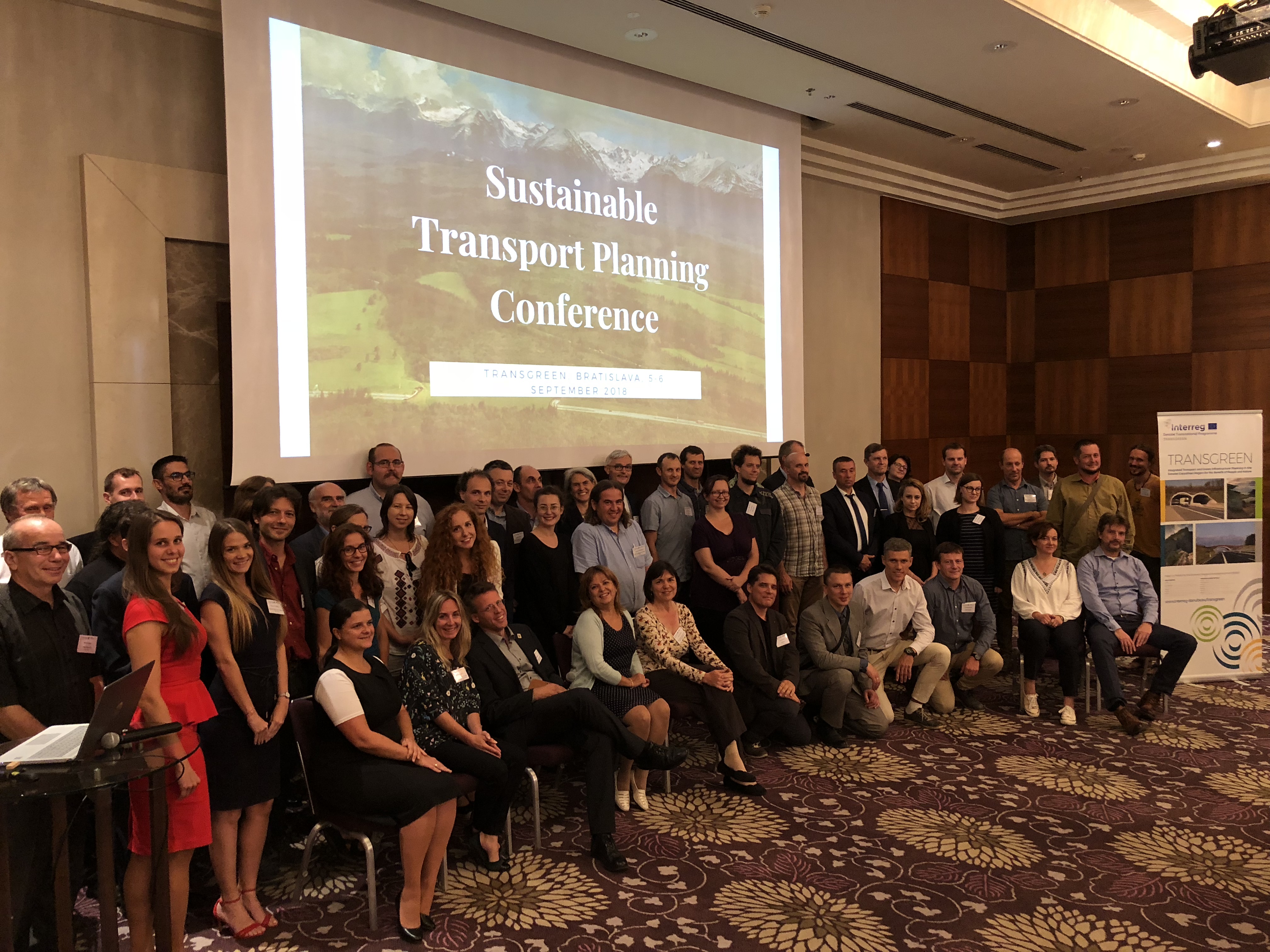TRANSGREEN - Minister to declare that "Environment must not stop at the edge of the highway"
05-09-2018
"Environmental protection doesn't sit under one single ministry. Respect for the environment is required across all sectors, and should become part of all investment projects which are implemented and will be implemented in Slovakia. In this direction, the present conference represents an important step forward. We need to ensure that in these projects environmental protection does not have a secondary place and, in the case of motorways, that it does not stop at the edge." declared Mr László Sólymos, Minister of Environment of the Slovak Republic, in the opening of TRANSGREEN Transport Planning Conference, taking place in Bratislava, 5-6 September 2018.

"By an international collaborative approach we can avoid mistakes that might have happened in the past. I see here the role of the TRANSGREEN project, because its results will become resources for international use. And that is the root to bringing projects into real life and the road towards more eco projects. As I have said before - solutions are already on their way" continued the Minister.
On the 5th and 6th of September 2018, with the occasion of the conference “Sustainable Transportation Planning in the Carpathians” Bratislava becomes the heart pumping expert solutions, policy initiatives and strong commitments on the topic of integrated transport planning including nature as a key stakeholder towards all countries in the Carpathian region and beyond.
This indicates an unprecedented level of involvement of a wide array of decision makers in the fields of transport planning and environment and all fields that come in between: EU representatives, Carpathian Convention members, Transport and Environmental Ministries, national and regional agencies, infrastructure and (public) service providers, experts, Interest groups: NGOs, universities, research institutions, natural resource managers (farmers, hunters, foresters etc). The topic of integrated transport planning has brought in supporters such as Mr. László Sólymos, The Minister of Environment of the Slovak Republic, and Ms. Ladislava Cengelová, State Secretary at the Ministry of Transport and Construction of the Slovak Republic, as well as Mr. Harald Egerer, the Head of UN Environment’s Vienna Office-Secretariat of the Carpathian Convention, who will take part in the talks.
Although the event is entitled “conference”, the Bratislava experts and policy-makers’ gathering is an action-oriented event aiming to support countries in taking concrete steps forward for the integration of nature into upcoming infrastructure projects.
Guidance on including stakeholders in transport planning
As the process of integrated transport planning, including the views of multiple stakeholders, is a very complex one, a set of Guidelines to help coordinate green infrastructure initiatives is being developed. The Guidelines on stakeholder engagement receive a first round of reviews in Bratislava and, once finalized, they are aimed for use in the 7 countries of the Carpathian Convention.
Policy outcome
Key experts in the transport fields and biodiversity conservation work together to kick-off the elaboration of the Carpathian Convention Strategic Action Plan on Sustainable Transportation in the Carpathians, a document which is planned to be adopted by governments in Carpathian countries. This creates the ground for a concrete implementation of the Protocol on Sustainable Transport to the Carpathian Convention, a legislative umbrella and policy framework favoring nature being considered while developing infrastructure.
Regional pool of expertise
Besides a favorable policy frame, the success of the regional initiative on “greening” infrastructure depends on practitioners and national authorities being informed and implementing the measures. To this end, a regional pool of expertise is created and a best-practices are shared across fields of work and countries.
“Sustainable transport represents a major challenge for today’s rural and urban environments, and this is particularly true for the sensitive mountain regions of the Carpathians. The Carpathians host a very rich diversity of fauna and flora and harbor many species that are increasingly threatened by fragmentation from infrastructure development. Roads, railways, hydropower dams and energy transmission lines as well as intensive agriculture and forest management challenge the sustainable management of the Carpathians’ fragile mountain ecosystems and natural resources. As infrastructure development continuously grows, it is important to find adequate solutions that balance conservation with growth and that ensure building in the most sustainable way possible. The Transport Strategic Action Plan, under development within TRANSGREEN, will support Carpathian Countries to go in this direction” opinionates Mr. Harald Egerer, Head of UN Environment’s Vienna Office-Secretariat Head of the Carpathian Convention.
rich diversity of fauna and flora and harbor many species that are increasingly threatened by fragmentation from infrastructure development. Roads, railways, hydropower dams and energy transmission lines as well as intensive agriculture and forest management challenge the sustainable management of the Carpathians’ fragile mountain ecosystems and natural resources. As infrastructure development continuously grows, it is important to find adequate solutions that balance conservation with growth and that ensure building in the most sustainable way possible. The Transport Strategic Action Plan, under development within TRANSGREEN, will support Carpathian Countries to go in this direction” opinionates Mr. Harald Egerer, Head of UN Environment’s Vienna Office-Secretariat Head of the Carpathian Convention.
“We are now, in a way, writing the history of the way we look at transport. We strongly believe in the need for modern and well-spread roads and rails in the Carpathians. But to be truly modern means to have a holistic picture on the transport infrastructure planning and make sure it integrates the needs of humans and nature alike. We need to avoid planning roads through areas with exceptional biodiversity and seek for the best solutions in other natural areas, so that projects integrate green infrastructure into transport infrastructure as much as possible. To this end, we need good technicians for the technical solutions based on nature conservation research results. In this respect, this meeting is truly ground-breaking and will foster the cross-sectoral cooperation between all relevant fields involved in transport development” declares Mrs. Hildegard Meyer, manager of regional TRANSGREEN project which hosts the Bratislava conference.


